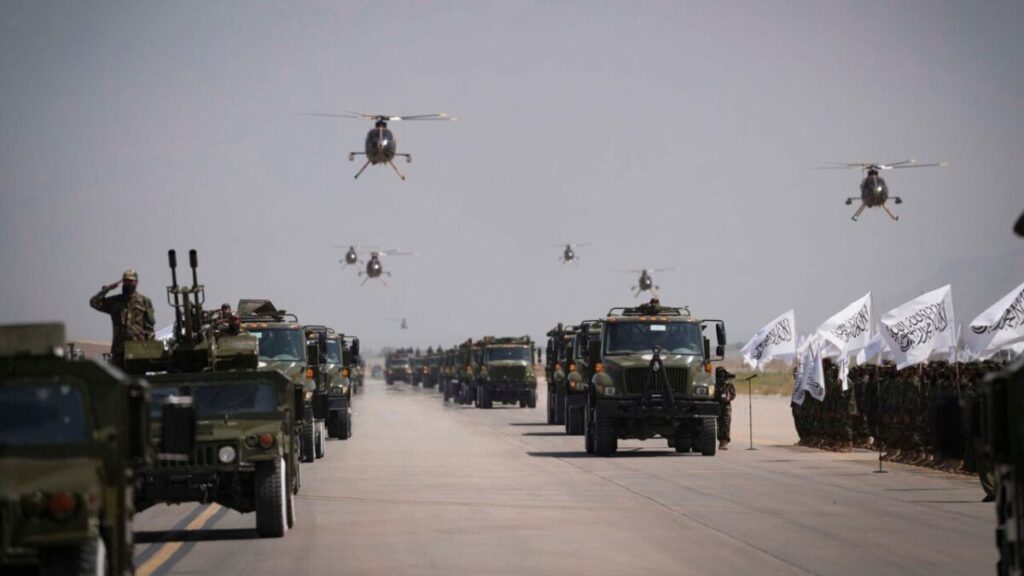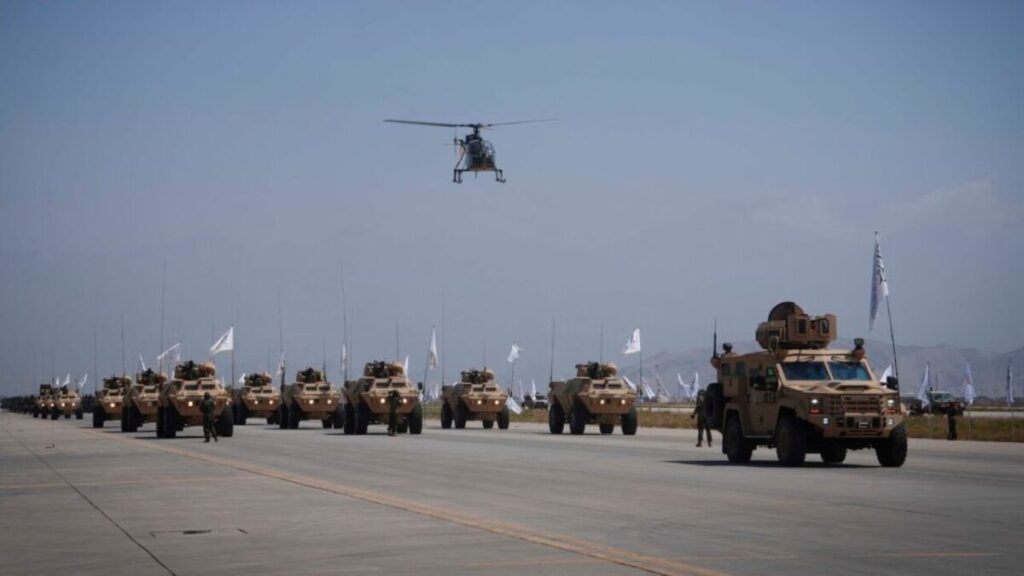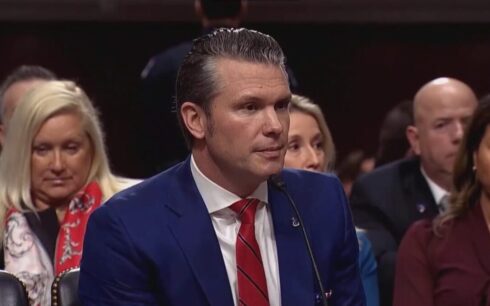KABUL, Afghanistan — Taliban on Wednesday conducted a parade at Bagram Airfield, showcasing U.S. military equipment left behind after the American withdrawal from Afghanistan in 2021. The event, held as part of the Taliban’s celebration of what it calls “victory day,” was an assertive display of power at what was once the largest U.S. and NATO base in the country.
During the event, Taliban leaders reiterated their call for international engagement, claiming that they have created conditions for “good relations” with the region and the world. “Our message to the world is not to worry. We took our freedom from them, but we do not seek retribution. We have provided a good opportunity and have good intentions to cooperate in rebuilding Afghanistan,” said Sirajuddin Haqqani, the Taliban’s interior minister.
Bagram Airfield was a central hub for U.S. and NATO forces throughout the two-decade war in Afghanistan. Former President Donald Trump, in an chat on X on Monday, referred to the Taliban as the “biggest arms seller” of U.S. military equipment left behind in Afghanistan. He claimed that $85 billion worth of military hardware remained in the country after the American withdrawal in August 2021.

Despite the Taliban’s calls for international recognition and cooperation, its three years in power have been marked by severe restrictions on women’s rights and freedoms. No country has formally recognized the Taliban government. Respect for human rights, particularly women’s rights, and the formation of an inclusive government have been key demands from both regional powers and the broader international community.
Abdul Kabir, the Taliban’s deputy chief minister, also spoke at the Bagram event, addressing global concerns. “We are keeping regional and global rivalries out of Afghanistan. We tell the world that we can have discussions and address any misunderstandings,” Kabir said. He claimed that diplomatic engagement with Afghanistan is increasing, with embassies reopening, foreign political delegations visiting, and Taliban representatives stationed in nearly 40 diplomatic missions abroad.

Kabir emphasized the Taliban’s desire for peaceful relations. “Our message to the world is one of good relations and engagement. We do not seek conflict or war with anyone. There was no threat under the Doha Agreement, and there will be none in the future.”
Abdul Salam Hanafi, Taliban’s another deputy chief minister, echoed these sentiments, stating that the Taliban is seeking “good relations” with neighboring countries and the wider international community. “We want positive relations, economic ties, and friendly relations with all countries, and we will not interfere in the internal affairs of others, just as we expect others not to interfere in ours,” Hanafi said.
Global humanitarian organizations have reported that Afghanistan has faced a severe humanitarian crisis over the past three years. Many humanitarian aid efforts have been conditioned on the Taliban’s treatment of women and respect for their rights.





